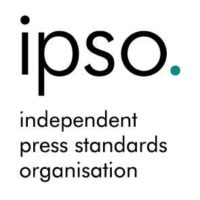By Ashley Young
A weekly newspaper has been criticised by the press regulator, Ipso for publishing a photograph and medical details of a child without the consent of her mother.
The South Shropshire Journal published a story about a two-year-old cancer sufferer after speaking to a relative who set up a fundraising page for her. However, the child’s mother, Zoe Bradley, was unhappy and complained about the publication to Ipso.
The paper had reported the child being recently diagnosed with leukaemia and gave details about treatment which she was due to begin at a named hospital. The paper proceeded to quote a family member who explained that Ms Bradley and her two older daughters, also named in the story, would be visiting the child in hospital and would have to stay away from home overnight. Also reported was the fact a crowdfunding campaign had been set up to support them.
The child’s upset mother told IPSO she had taken steps to keep her youngest child’s illness private. She added that the fundraising page which she had since asked to be deleted, had been set up by a relative without her knowledge or consent, and was intended for friends and family only. She complained under Clause 2(privacy) and Clause 6 (Children)of the Editors Code
Ms Bradley told the regulators that the relative who was quoted felt pressured into giving the story and was not acting on her behalf or with her consent. She also said that the photograph of her daughter which was published was not in the public domain, and had been provided by her relative without her consent.
The Journal apologised for any distress caused, but told IPSO it had published the article in good faith and said that the reporter had learned of the story after speaking with the relative quoted in the article. The paper provided copies of correspondence between the reporter and the relative in which the journalist asked several times to speak with Ms Bradley in relation to the story about her daughter, but was told she had “said yes to the story” and that the relative was “happy to answer” any questions.
The newspaper said it was reasonable for the reporter to assume that the relative was acting on behalf of Ms Bradley, with her knowledge and consent, and added the journalist wished to avoid contacting her unnecessarily because she was with her daughter in hospital at that time.
The relative was said to have “changed her mind” after being told, once the story had gone to print, that it would appear on the front page. The newspaper denied reporting details of the child’s medical condition and treatment was an intrusion into the child’s privacy because this information was already in the public domain via the public fundraising page.
The paper added that it was clear Ms Bradley was aware of and had consented to the page’s launch because she had commented on and shared posts asking for donations on social media.The paper said it offered to make sure that the article did not appear online and offered to publish a statement explaining what had happened, why the article was published, and apologising for the distress caused.
IPSO recognised the Journal had understood the relative who had spoken to the journalist was acting with the mother’s knowledge and consent, and that some information about the child’s illness was already in the public domain, but no direct enquiries to Ms Bradley or another custodial parent had been made to obtain their explicit consent for publication.
IPSO found publishing the photograph as part of an article which included sensitive, medical information about a child, without parental consent, constituted a breach of Clause 6, while the publication of information which related to the girl’s health and was not already in the public domain amounted to a breach of Clause 2.




